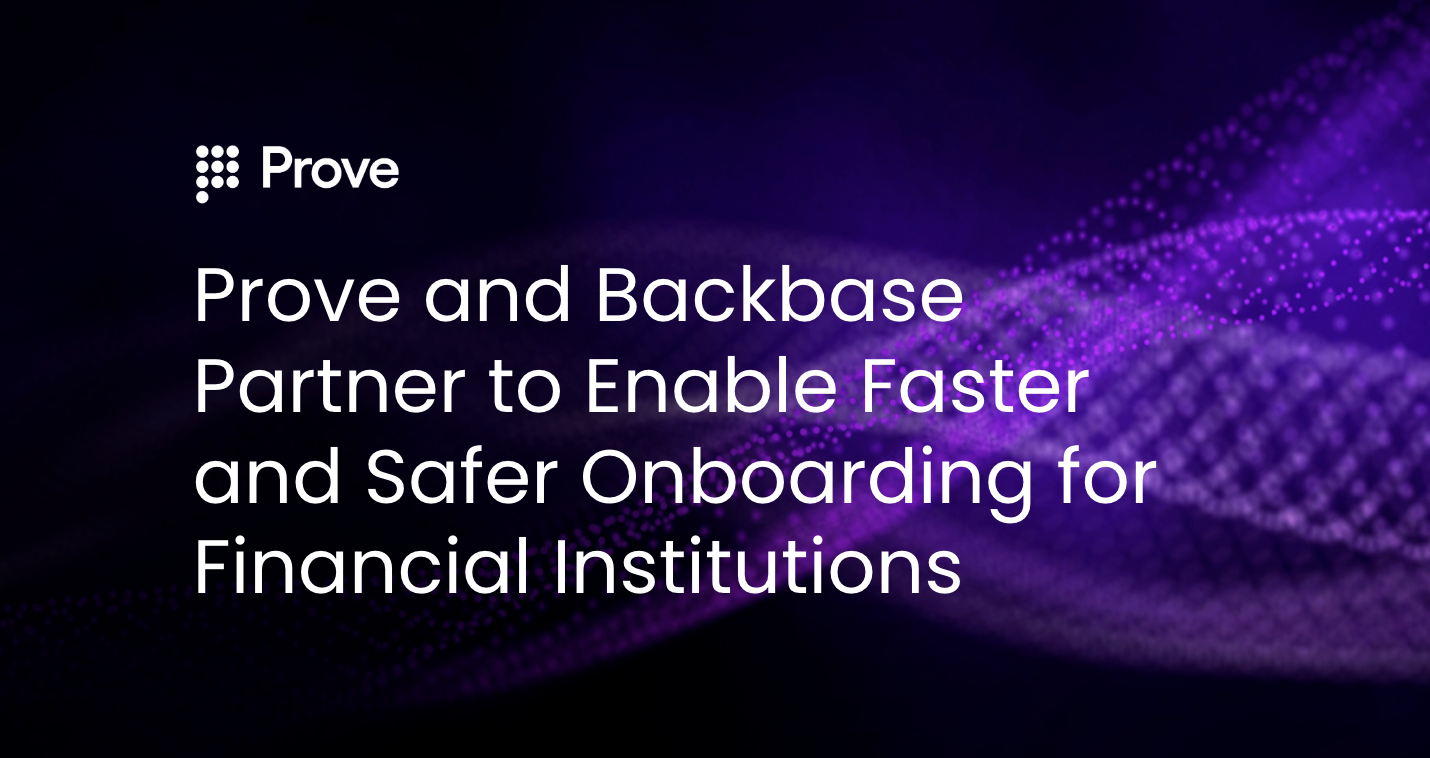Prove CEO Rodger Desai Featured on Fintech Leaders Podcast


Prove CEO and co-founder Rodger Desai was recently the featured guest on the Fintech Leaders podcast with fintech leader and entrepreneur Miguel Armaza. The two discussed the identity verification market, innovations in onboarding and customer enablement, and explained how smartphone data provides the most effective way to verify customers.

We invite you to listen to the full podcast here, where you’ll get Rodger’s full insights into his thinking and approach to building and scaling the market’s leading identity verification solutions. Here are some highlights from his discussion:
Why will KYC processes become nearly free in the near future?
According to Rodger, the current industry's focus on combating fraud and security threats consumes significant resources, yet instances of money laundering and financial suspicious activities continue to rise. Historically, the industry has operated on a fear-based model, meticulously scrutinizing each transaction to catch fraudsters, thus inflating costs. However, this approach proves inefficient, especially in a world where the majority of transactions are legitimate. In an ideal scenario, technology should seamlessly and accurately handle identity verification, akin to making phone calls without constant identification. As the KYC industry becomes more automated, manual intervention will decrease significantly, leading to a substantial reduction in costs. In theory, by easing the burden of fraud prevention and compliance, companies can reallocate resources to core customer functions.
How can cell phone and telecom data improve identity verification and reduce scams?
Prove prioritizes accuracy in identity verification, utilizing deterministic methods over probabilistic ones. By utilizing phone numbers and associated metadata as the primary verification method, Prove eradicates guesswork, ensuring the claimed identity is indisputably linked to the phone number. This approach renders it nearly impossible for fraudsters to impersonate others. Prove's method has demonstrated remarkable effectiveness, boasting an impressive record in identity verification accuracy.
What are the implications of AI-powered fraud?
Rodger expresses profound concerns regarding AI-driven fraud's capability to convincingly replicate human interactions and personal details, potentially deceiving conventional security measures. For instance, AI-powered attackers could exploit publicly available information to impersonate trusted individuals, engaging in conversations about personal topics to gain trust. While probabilistic methods were once effective, current levels of fraud sophistication necessitate deterministic approaches, such as cryptographic keys and direct authentication linked to immutable data points like phone numbers, to counteract advanced threats.
How does Rodger safeguard his data and digital identity from bad actors?
Rodger emphasizes the importance of separating critical security functions from everyday communications. To protect his data, he employs a dedicated phone number solely for multi-factor authentication (MFA), distinct from his primary phone. This measure reduces the risk of SIM swapping and other forms of identity theft. Additionally, by using a carrier without a call center, he further minimizes avenues for attackers to manipulate or hijack his phone number. The necessity for such precautions underscores the need for improved systemwide security measures, as reliance on SMS-based MFA remains vulnerable to exploitation.
Listen to the full Fintech Leaders podcast with Rodger here.

Keep reading
 Read the article: Prove Launches Global Identity Graph to Redefine Digital Trust for 90% of Digital Consumers
Read the article: Prove Launches Global Identity Graph to Redefine Digital Trust for 90% of Digital ConsumersProve has launched its Global Identity Graph, a foundational platform that connects verified human identities to their digital tokens, redefining digital trust and enabling instant, frictionless, and secure engagement for over 90% of digital consumers worldwide.
 Read the article: Prove Partners with Hard Rock Bet to Deliver Elite Onboarding and Enhance Player Experience
Read the article: Prove Partners with Hard Rock Bet to Deliver Elite Onboarding and Enhance Player ExperienceProve and Hard Rock Bet partner to deliver elite player onboarding by using Prove Pre-Fill® to instantly verify identities, streamline signup, and enhance security in online gaming.
 Read the article: Prove and Backbase Partner to Enable Faster and Safer Onboarding for Financial Institutions
Read the article: Prove and Backbase Partner to Enable Faster and Safer Onboarding for Financial InstitutionsThe Prove Pre-Fill solution integrates with Backbase’s AI-powered Banking Platform to reduce fraud, streamline data entry, and improve digital account opening experiences.












